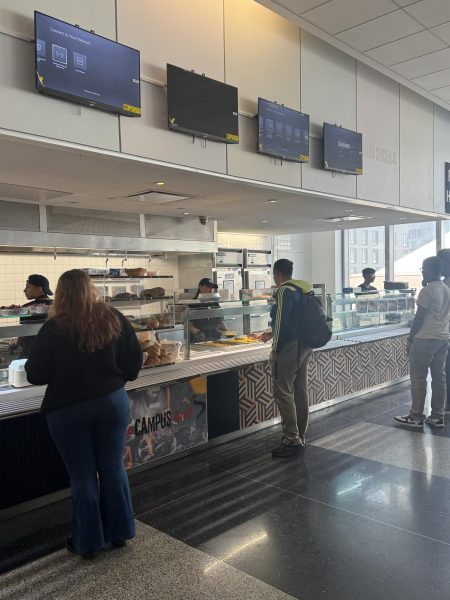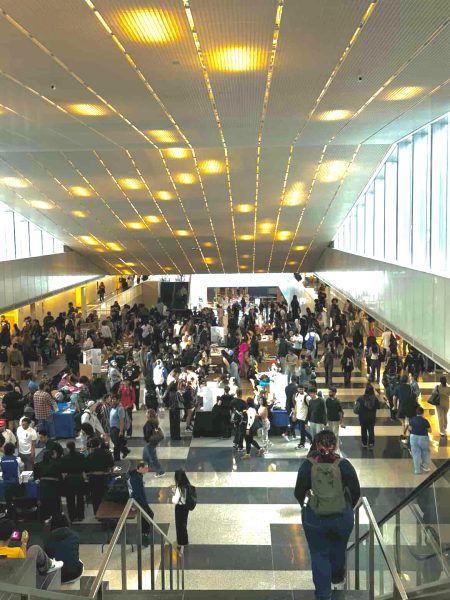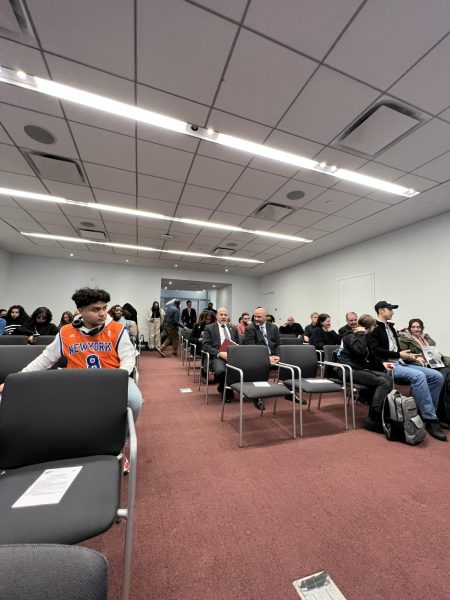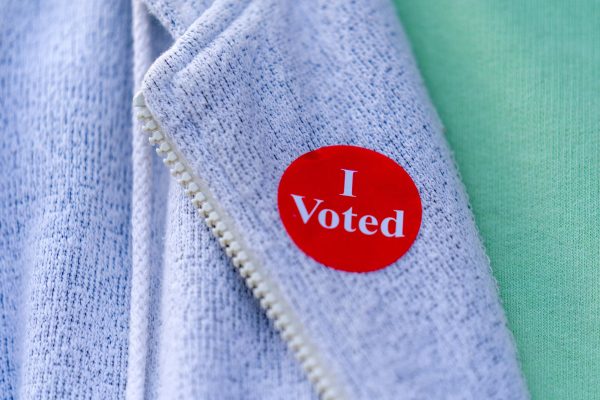Staying Healthy During A Pandemic
Yoga at Home
April 26, 2021
The COVID–19 pandemic affected numerous aspects of people’s lives including healthy living and mental health. Isolation, sitting for an extended period gave way to unhealthy living. This is a challenge for many in these times of self-isolation.
Aziza Sumler, a personal and fitness trainer at LA fitness said, “Actually, in the beginning, it was hard, because you know staying in the same place for a while, all you do is watch movies and eat.”
According to a report conducted by New Harris polling for the American Psychological Association in 2020, it was reported that 42% of Americans have gained about 29 pounds on average during the pandemic. In comparison, 18% have unintentionally lost weight for an average loss of an equally surprising 26 pounds.
Being inactive can disrupt normal appetite, which leads to passively eating more than is needed, hence the reason for weight gain.
“I feared falling into the trap of being inactive,” said Sumler. “I was scared to check my weight on the scale for some time, but I really enjoyed the energy I gained over the period when I was working out.”
Although gyms might not be open, there are other alternatives to staying healthy. While physical activity has its benefits like reducing the risk of developing several diseases like type 2 diabetes, cancer, and cardiovascular disease, doing other things can also improve health.
Lynn Slocomb, owner of The Light Within yoga studio in West Grove, Chester County, Pennsylvania has been practicing mindfulness through yoga.
“It makes me more aware of the happenings going on in my body, and it makes me feel connected to my body,” she said.
Like Sumler, Slocomb also struggled with the transition in the beginning. As most teachers have felt, she felt resistant to virtual classes. She describes her yoga studio as a haven for her students.
She has embraced the transition, as she teaches yoga virtually and now in person. She has reaped one of the benefits of yoga which is a connection with a supportive community. She claims that is the motivation that keeps her going even with the chaos going on around the world.
While it is no doubt that people’s exercise habits changed during the pandemic, with all the uncertainty and stress, some others just stopped completely. According to the New York Times, an overwhelming majority worked out less, especially when full lockdowns began, especially for people under 40.
Dolapo Olatunji, a student of the Borough of Manhattan Community College is a prime example. Although Olatunji was not an avid gym-goer like Sumler, she noticed that not being able to get a stress release had a negative effect on her.
“I felt caged and limited at some point,” said Olatunji. “I also had many sleepless nights because even though I didn’t go to the gym regularly, it was a way for me to not think about anything else for just the time I’m at the gym.”
Studies have linked being active to mental health. The U.S. National Library of Medicine and National Institutes of Health states that exercise improves mental health by reducing anxiety and depression. Activity is beneficial to one’s health—physically and mentally—the pandemic has complicated the capability of remaining hyper-active.
It was advised to eat healthy during the lockdown because it would help keep the body and mind nourished and it could also reduce anxiety.
Irene Park, a manager at Feel Beauty Supply used to be on a vegan diet before the pandemic. She ate twice a day and at the same time. She said it helped her stay grounded and manage the stress that came with the job. However, with the lockdown, her diet changed.
“I live alone, and I lack discipline, so it was very hard for me to continue my diet,” she said. “I was in a dark place. Honestly, I would say I was depressed and I’m trying to take it one day at a time.”
It was reported that the number of young people with anxiety doubled during the lockdown. Many were worried about the emotional impact that the loss of loved ones would have on them. Many found it hard to cope with the grief and isolation, and others found it hard to deal with job loss and financial insecurity.
Sarah Aninye, a student at John Jay College of Criminal Justice, is one of the 40 million people that suffer from anxiety in the United States. Although it is not as severe, it is just enough to sometimes interfere with her daily routine.
“I get anxious a lot and it got worse during the lockdown,” she said. “There was nowhere to divert my energy and nothing to distract me.”
To cope with the disorder, she was advised by her therapist to do anything that would get her moving. It could be focusing on the rhythm of her breathing or just taking a minute to feel everything around her. She even took it a step further by exercising for at least one hour a day and she has continued to do that by enrolling at the gym.
“If there is any advice, I could give to people whether or not they feel overwhelmed it would be to take a breath,” she said. “Get a plant, do some facials, go get your nails done, go to the park, just be involved, it helps.”












